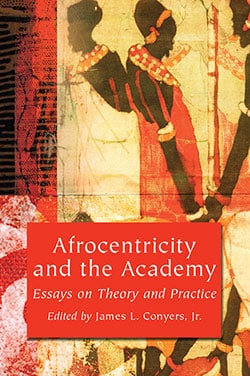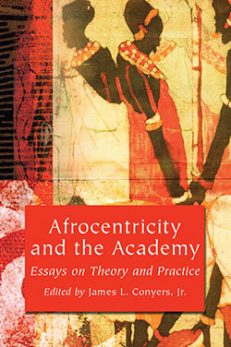Afrocentricity and the Academy
Essays on Theory and Practice
Original price was: $39.95.$31.99Current price is: $31.99.
In stock
About the Book
Afrocentricity is a philosophical and theoretical perspective that emphasizes the study of Africans as subjects, not as objects, and is opposed to perspectives that attempt to marginalize African thought and experience. Afrocentricity became popular in the l980s as scores of African American and African scholars adopted an Afrocentric orientation to information.
The editor of this collection argues that as scholars embark upon the 21st century, they can no longer be myopic in their perceptions and analyses of race. The seventeen essays examine a wide range of variations on the Afrocentric paradigm in the areas of history, literature, political science, philosophy, economics, women’s studies, cultural studies, ethnic studies and social policy. The essays, written by professors, librarians, students and others in higher education who have embraced the Afrocentric perspective, are divided into four sections: “Pedagogy and Implementation,” “Theoretical Assessment,” “Critical Analysis,” and “Pan Africanist Thought.”
About the Author(s)
Bibliographic Details
Edited by James L. Conyers, Jr.
Format: softcover (6 x 9)
Pages: 320
Bibliographic Info: tables, notes, bibliography, index
Copyright Date: 2003
pISBN: 978-0-7864-1542-7
eISBN: 978-0-7864-8325-9
Imprint: McFarland
Table of Contents
Preface 1
Part 1: Pedagogy and Implementation
African American Achievement: Using Critical Pedagogy to Critique a Plan Intending to Address Educational Disparities
Carol Lloyd 5
The Black Studies Paradigm: The Making of Scholar Activists
Terry Kershaw 27
The Afrocentric Idea in Education
Mole. Kete Asante 37
Afrocentricity and the Arrangement of Knowledge
Kathleen E. Bethel 50
Part 2: Theoretical Assessment
W.E.B. Du Bois and/as Africana Critical Theory: Pan-Africanism, Critical Marxism, and Male Feminism
Reiland Rabaka 67
A Theoretical Analysis of Persuasive Tactics Used by Frederick Douglass in “The Meaning of July Fourth for the Negro”
Jason J. Thompson and Reynaldo Anderson 113
The Philosophy of the Black Power Movement Using Ntu as a Theoretical Construct
Paul Easterling 123
African American Intellectual History: Philosophy and Ethos
Malachi Crawford 129
Part 3: Critical Analysis
Afrocentricity and African Psychology
Kevin Cokely 141
The Black Male Narrative: An Afrocentric Assessment
James L. Conyers, Jr. 163
What Is Afrocentric? Applying Afrocentric Analysis to a Non-Fiction Text
Sandy Van Dyk 176
Part 4: Pan-Africanist Thought
The Return: Slave Castles and the African Diaspora
Tanya Y. Price 187
The Shebanization of Knowledge
Miriam Ma’at-Ka-Re Monges 199
Why Write “Black”? Reclaiming African Culture Resource Knowledges in Diasporic Contexts
George J. Sefa Dei 211
“There Was No Better Place to Go”? Quintard Taylor, Afrikancentricity, and the Historiography of the Afrikan Experience in the American West
Ahati N.N. Toure 231
Mulattos, Freejacks, Cape Verdeans, Black Seminoles, and Others: Afrocentrisim and Mixed-Race Persons
Rhett Jones 257
The Interaction Sphere of Nubia and Egypt: From the Old Kingdom to the Meroitic Period
Larry Ross 286
About the Contributors 309
Index 311
Book Reviews & Awards
“interesting…important collection of essays…fascinating…recommended”—Choice.





